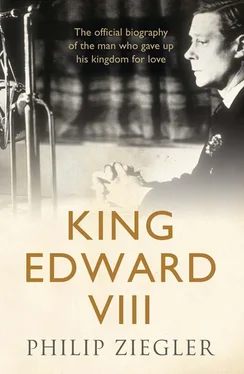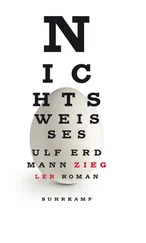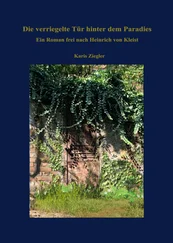Prince Edward, aged six, was now second in line to the throne. The event meant little to him; he was dimly aware that something of vast significance had occurred, an era had ended, hushed and reverent mourning was in order, but he had hardly known his great-grandmother and felt no personal grief at her disappearance. Of the funeral he remembered only ‘the piercing cold, the interminable waits, and of feeling very lost’. 48He made a clearer impression on others than the ceremony did on him. His aunt Maud, Princess Charles of Denmark and later Queen of Norway, remembered that ‘Sweet little David behaved so well during the service and was supported by the little Hesse girl who took him under her protection and held him most of the time round his neck. They looked such a delightful little couple!’ 49King Edward’s Coronation the following year meant little more to him. Edward remembered only the longueurs of the service in the Abbey, mitigated by the clatter when one of the great-aunts dropped her book programme over the edge of her box into a gold cup below. Once only did the ceremony come alive, when his mother whispered to him, ‘Now Papa will do homage to Grandpapa.’ 50For a moment the relevance of what was going on to himself and to his country became dramatically apparent.
Grumbling, the Duke of Cornwall – or Prince of Wales, as it is easier to style him without more ado – moved from his modest apartments in St James’s Palace to the massive grandeur of Marlborough House. He took over Frogmore House at Windsor and Abergeldie near Balmoral. These changes made little difference to his son’s way of life. But a far more significant event had already occurred. In the spring of 1902 the Prince of Wales engaged as tutor to his elder sons Henry Hansell, a thirty-nine-year-old schoolmaster and son of a Norfolk country gentleman, who had taken his degree at Magdalen College, Oxford, and had recently been tutor to the Duke of Connaught’s son, Prince Arthur.
There were a lot of good things about Hansell. Six foot three inches tall and strikingly handsome, he had played football for Oxford and was an excellent shot. Shane Leslie, who was taught by him, describes him as uproariously funny, to small boys at least, convulsing all around him by the comical goose step with which he would advance from his goal in a football match. 51He liked his charges and served them with loyalty and devotion. The Princess of Wales thought he taught history well and managed to engage the boys’ interest: ‘This pleases me immensely as you know how devoted I am to history.’ 52He made an excellent impression on many people who should have been competent judges. Lord Derby said of him: ‘Never have I found a man who understands boys better. Admirably straight, but very broadminded. I can imagine no man better able to guide rather than drive a boy.’ 53‘ Mon impression sur M. Hansell fut excellente du premier coup ,’ wrote the Marquis de Breteuil. ‘ Je le jugeai de suite un homme intelligent, plein de tact, bon et complètement devoué a son élève .’ 54
And yet it is impossible to doubt that this good, honest, conscientious man had a disastrous effect on the intellectual development of his pupils. Without imagination, with only the most rudimentary sense of humour, pedestrian in mind, aesthetically unaware, Hansell represented everything that was most philistine and blinkered about the English upper middle classes. Whatever adventurous instincts Edward might have had were blanketed by his tutor’s smug and unquestioning self-assurance. Harry Verney worked with Hansell during the First World War and told Edward that what had struck him was ‘his commanding presence … his savoir faire coupled with the most incredible stupidity in dealing with the business of the office … I am amazed to read that he got a Second in history at Oxford, but I expect you are right. With it all what a very charming man he was, and devoted to you.’ 55Edward’s final view was not dissimilar. He told Harold Nicolson in 1953 that Hansell had been ‘melancholy and inefficient’. ‘He never taught us anything at all,’ he went on. ‘I am completely self-educated.’ 56
Prince Edward had a naturally enquiring mind. He was ready to question any dogma and investigate any phenomenon which he did not immediately comprehend. He was hungry for exact information, and wanted to know not only how things worked, but why, and whether they could work better. He did not lose this freshness of approach but, thanks in part at least to Hansell, it was never harnessed to an intellectual apparatus which would have made it an effective instrument. It was the mark of Hansell’s tuition that the Duke of Windsor could admit fifty years later that he had ‘always preferred learning history from pictures than from script, and it’s amazing how much one can learn from pictures’. 57That his father should think his progress under Hansell all that could be desired was perhaps to be expected; that his mother was equally approving is more surprising. Yet she appears to have had no qualms. ‘I do so hope our children will turn out common-sense people, which is so important in this world,’ she told her aunt Augusta early in 1907. ‘We have taken no end of trouble with their education and they have very nice people round them so one feels all is being done to help them.’ 58
To be fair to Hansell, he saw the claustrophobic limitations in the system of education imposed upon his charges. He wanted them sent to a preparatory school, preferably Ludgrove where he himself had taught. When this proposal was brusquely vetoed by the Prince of Wales, he at least tried to open their social horizons a little way by organizing football matches in which the princes and boys from the local village played against teams from nearby schools. Edward enjoyed both the games and the conviviality which accompanied them. His father was dubious, not so much over the principle as over the choice of sport. He complained to Hansell that the Prince much preferred ‘football to golf, which is a pity, and dislikes playing golf now, probably because his brother beats him, but I want you to encourage him all you can. I have already told him he will have more opportunities of playing golf when he grows up than football or cricket.’ 59But Edward was always hesitant about fresh experiences: ‘How funny he is about trying anything new like hockey,’ remarked his father. ‘We must try to get him over it.’ 60
You’ll be glad to hear
That the Cuckoo is hear!
That is poetry. 61
wrote Edward proudly from Frogmore in April 1904. It was a solitary foray into an art form that was to hold little appeal for him in later life. But in some ways his education was less inadequate. He took a keen interest in the 1906 general election, which Hansell turned into a game. Edward backed Campbell-Bannerman, the Liberal leader; Prince Albert favoured the Conservative Balfour. When Campbell-Bannerman, duly elected Prime Minister, visited Windsor, the eleven-year-old Prince asked whether being at the top of the ladder would not make him feel giddy. ‘Is this not delightful and promising for his future!’ exclaimed his doting great-aunt Augusta. 62His memory for names and faces was trained from a very early age – after going into a room with some fifty people in it he was rigorously grilled on the identity of every one he had met. He was encouraged to take an interest in any part of the world visited by his parents. When the Prince of Wales was in India: ‘Mr Holland Hibbert came to lecture to us. The part that interested me most was when he told us about the holy men of Benares. He said that some of them hold their arms up all their lives. I think it must be rather tiresome.’ Some of them also lie on a bed of nails, replied his father. ‘I thought them rather nasty kind of people.’ 63
Читать дальше












